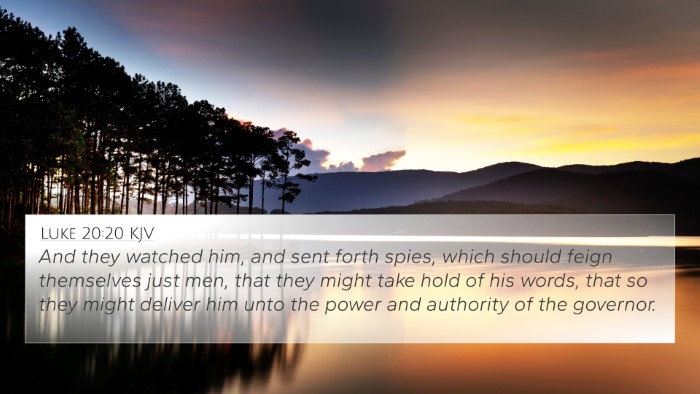Psalms 83:3 - Summary and Interpretation
Psalms 83:3 states, "They have taken crafty counsel against thy people, and consulted against thy hidden ones." This verse encapsulates a significant evaluation of the collective adversarial forces that threaten the people of God, expressing both a sense of urgency and the deep concern of the psalmist regarding the strategies employed by those in opposition to the faithful.
Insights from Public Domain Commentaries
The combination of insights from respected commentaries, such as those by Matthew Henry, Albert Barnes, and Adam Clarke, provides a rich tapestry of understanding regarding this verse.
-
Matthew Henry emphasizes the notion of a hidden or oppressed people, highlighting God's faithful who are often overlooked and vulnerable to the schemes of others. His commentary draws attention to the surveillance of evil intentions aimed at subverting the people of God.
-
Albert Barnes elaborates on the term "crafty counsel," suggesting a deliberate and strategic planning by the enemy against the true followers of God, indicating a well-organized opposition that seeks to undermine at every level.
-
Adam Clarke explores the implications of the word "consulted," indicating that the enemy’s plans are not only malicious but also tactically sophisticated, reflecting a deeper threat to those who take refuge in God’s protection.
Similar Verses and Cross-References
This verse resonates with several other passages in scripture that speak to the themes of opposition, deceit, and the protection of God's people. Here are 10 cross-references that complement the message of Psalms 83:3:
- Psalm 2:1-2: "Why do the nations rage, and the people plot a vain thing?" – captures the futility of earthly alliances against God.
- Psalm 31:13: "For I hear the slander of many; terror is on every side." – reflects the intimidation felt by the faithful.
- Psalm 64:2-4: "Hide me from the secret counsel of the wicked..." – reiterates the theme of hidden plans against the righteous.
- Isaiah 54:17: "No weapon formed against you shall prosper." – God's assurance against schemes of the adversaries.
- Matthew 10:16: "Behold, I send you out as sheep in the midst of wolves..." – Jesus identifies the vulnerability of His followers.
- 1 Peter 5:8: "Be sober-minded; be watchful. Your adversary the devil prowls around like a roaring lion..." – a reminder of spiritual vigilance.
- Revelation 12:10: "...the accuser of our brothers has been thrown down, who accuses them day and night before our God." – a depiction of ongoing accusations faced by believers.
- Proverbs 12:5: "The plans of the righteous are just, but the advice of the wicked is deceitful." – juxtaposes the integrity of God's people against the deceitfulness of their adversaries.
- Jeremiah 11:19: "But I was like a gentle lamb led to the slaughter. I did not know it was against me that they devised schemes." – the prophetic voice regarding conspiracies against the faithful.
- Luke 19:47: "And he was teaching daily in the temple; but the chief priests and the scribes... sought to destroy him." – highlights the opposition faced by Jesus himself.
The thematic connections between these verses provide an expansive landscape of understanding regarding Psalms 83:3. It illustrates the classical struggle between good and evil, establishing a foundation for deeper theological reflection on the nature of spiritual warfare and divine protection.
Understanding Through Cross-References
Exploring the connections between these passages allows for a more profound appreciation of the trials faced by God's people throughout scripture. Engaging in comparative Bible verse analysis reveals how themes of counsel, hidden dangers, and divine intervention are woven through both the Old and New Testaments.
Tools for Cross-Referencing
For those pursuing a deeper understanding of these concepts, employing Bible concordance tools can facilitate the search for related passages. Utilizing a Bible cross-reference guide can aid in identifying connections between Old and New Testament texts, enriching one's study experience.
Additionally, cross-reference Bible study methods can enhance personal study time, allowing individuals to discern the inter-Biblical dialogue present in these verses. As applications unfold, one can reflect on the broader implications for their own lives, recognizing the ever-present need for divine counsel and protection against adversarial plots.












